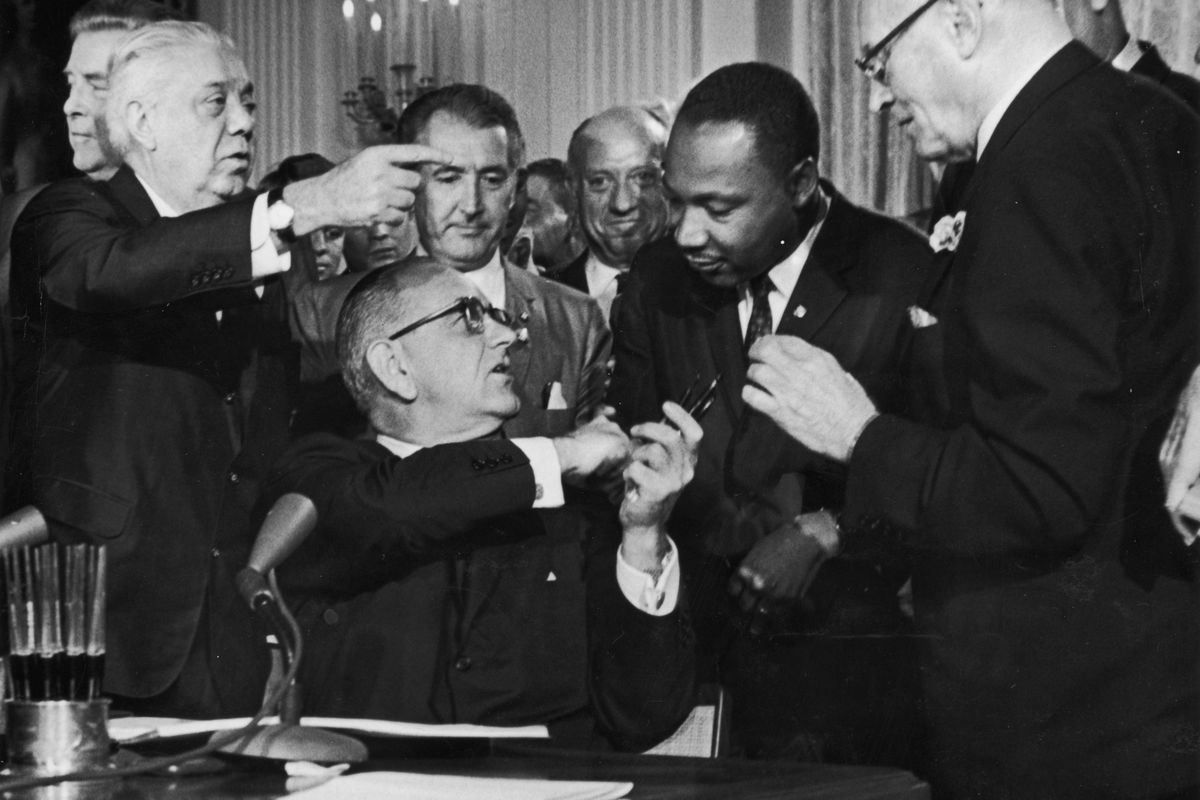Black History
Five Facts to Know About the Civil Rights Act of 1964 on its Anniversary

Fifty-six years have passed since President Lyndon Johnson signed the Civil Rights Act of 1964 into law. The legislation represented the first major social justice accomplishment in decades and was the harvest of years of nonviolent protests led by Dr. Martin Luther King and a cadre of courageous men and women. Below are five facts about the Civil Rights Act of 1964:
Segregation was no longer allowed in public places.

Workplace discrimination based on race, color, religion, sex, or national origin was banned.

President John F. Kennedy was the first to propose the landmark legislation in June 1963. After he was assassinated in Dallas that November, Lyndon B. Johnson took up the cause and shepherded it through Congress.

Strong opposition from some Southern lawmakers who staged a 75-day filibuster, one of the longest in American history. Senator Robert Byrd of West Virginia, who was a former member of the Ku Klux Klan, spoke for over 14 consecutive hours.

The Civil Rights Act of 1964 paved the way for the Voting Rights Act of 1965 which overcame legal barriers imposed on African Americans to suppress their right to vote.


-

 Featured12 months ago
Featured12 months agoArkansas Sheriff Who Approved Netflix Series Says He Stayed ‘In His Lane’
-

 HBCUS12 months ago
HBCUS12 months agoSenator Boozman Delivers $15 Million to Construct New UAPB Nursing Building
-

 News12 months ago
News12 months agoMillions In the Path of The Total Solar Eclipse Witnessed Highly Anticipated Celestial Display
-

 Featured9 months ago
Featured9 months agoCalifornia Is the First State to Create A Public Alert for Missing Black Youth
-

 Featured9 months ago
Featured9 months agoAfrican American Leaders Stay the Course Amid Calls for President Biden To Bow Out of Race
-

 Featured9 months ago
Featured9 months agoThe Debate Fallout Lands on Both Candidates

